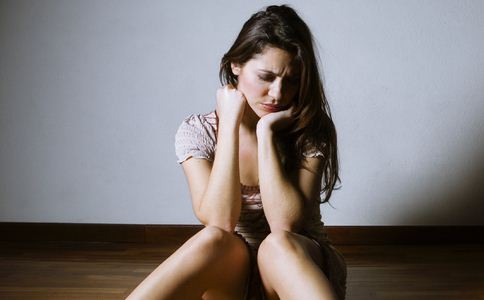Those who want to conceive can not be conceived, but those who do not want to conceive always have unexpected surprises. Life is so wonderful. What is the reason for such a strange fate? In fact, you don't know enough about women's safe period. So, when is the safe period for women? Is it true that you can't get pregnant?
When is the safe period for women?
The entire menstrual cycle of a woman is divided into ovulation period, safe period, and menstrual period. During the ovulation period, the probability of pregnancy is doubled, and during the safe period, it can be safely contraceptive. If these three stages can be clearly distinguished, pregnancy and contraception will be an easy thing. However, there are many women who do not understand this common sense, and some people's cycles are irregular and it is difficult to calculate the exact date.
The female safe period can be divided into two parts. The first is the safe period before ovulation, that is, the period from clean menstruation to the day before ovulation; the second is the safe period after ovulation, which is the period from the end of ovulation to the time before the next menstruation. Intercourse during these two time periods is generally safer, and it is not easy to get pregnant, about fifteen days.
However, the above-mentioned division of women's safe period is mainly aimed at women with regular menstruation. In addition, the time of female ovulation will also be affected by mood, climate, external environment, health status, etc., and ovulation may be delayed or delayed, or ovulation may occur twice within a month. Therefore, women's safe period is not absolutely safe.
Comparing the two parts of the female safe period, we will find that the safe period after ovulation is safer than the safe period before ovulation. This is because there is less chance of ovulating twice or later, and in most unexpected cases, ovulation will be earlier.
If you want to calculate a more accurate female safe period, in addition to calculating according to common sense, it is recommended to determine the safe period and ovulation period in combination with body temperature, leucorrhea changes, etc.
Like the menstrual cycle, a woman's body temperature changes. Women's body temperature will be lower before ovulation, and after ovulation, the body temperature will rise, the vaginal discharge will be stringy, and it will continue to drop before the next menstrual period. This change is repeated every menstrual cycle.
What is the safe period?
The ovulation period (also a dangerous period) is about the 14th day of your next menstrual period. For example, if your period is on February 24, then your dangerous period will be returned to 14. Days, that is, around February 10, but there are many women whose ovulation period will be delayed or advanced, not necessarily 14 days in advance. Days are used as a safe period, and ten days in the middle are a dangerous period. If you have sex during a dangerous period, you must take contraceptive measures. If you are in the safe period, you can not use contraception.
Is it true that you can't get pregnant if you have sex during the safe period?
It is true that having sex within the safe period can avoid a certain chance of pregnancy, but it does not guarantee that everyone will not get pregnant within this period, this is uncertain!
Although a woman's menstrual sex life is unlikely to lead to pregnancy, there is nothing absolutely impossible for pregnancy. Since sperm can live for up to a week after entering a woman, fertilization is possible once they encounter an egg. Some women happen to ovulate during their period, so pregnancy is possible.
In addition, traditionally, the safe period for adult women is seven days before menstruation and eight days after menstruation, which is a calculation method used by most people for contraception. In addition to the calendar method using the number of days, there are basal body temperature method and secretion observation method. However, the safe period is not absolutely safe. Sometimes women will ovulate earlier or later, and the judgment of the safe period will become invalid at this time. Judging the safe period can only reduce the chance of pregnancy, but it cannot guarantee 100% that the safe period will not be pregnant.
It is more useful for women who menstruate on time, and women who have irregular menstruation can not accurately calculate the time of menstruation, so this method is not desirable, and you must pay attention to it.










